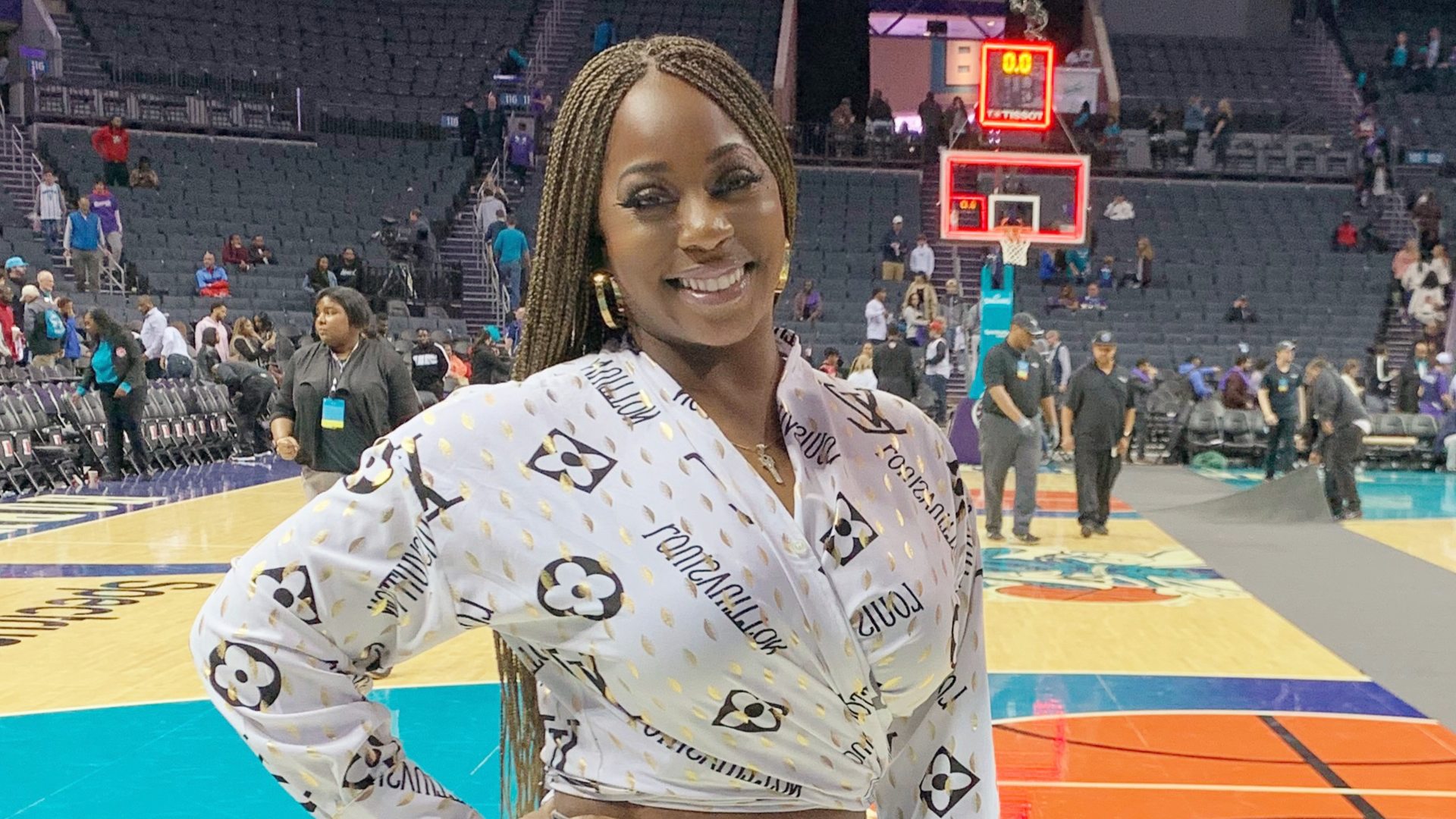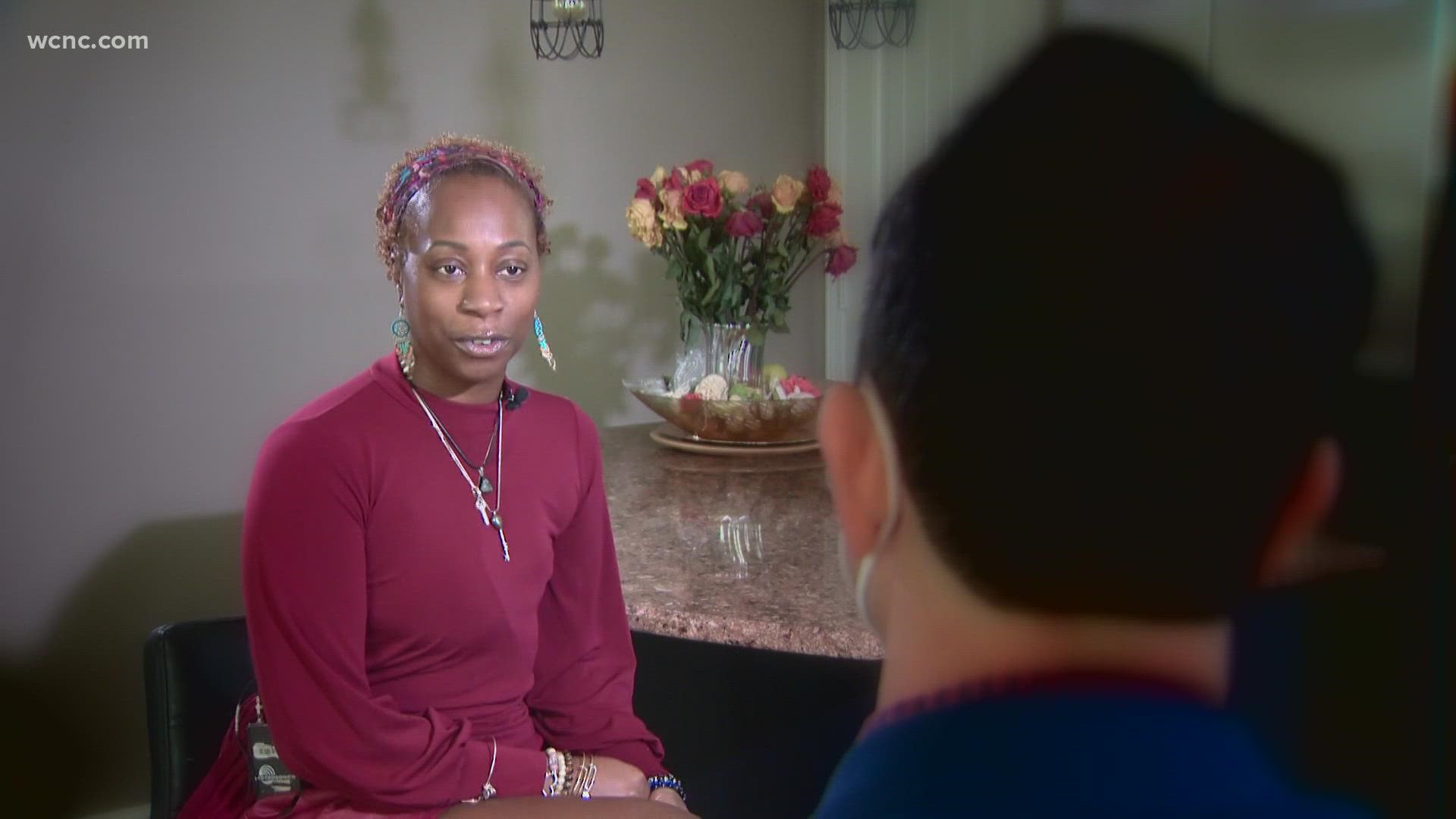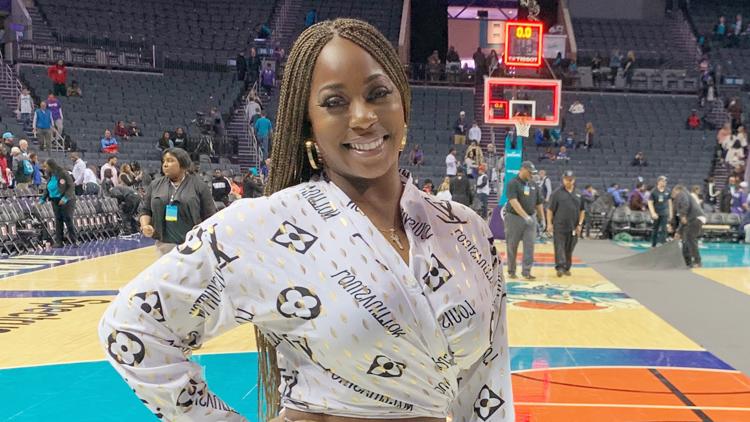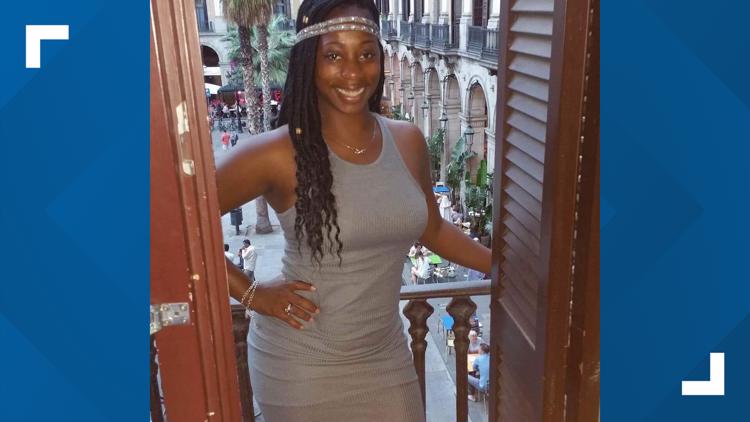Black breast cancer survivor turns her medical frustration into advocacy for others
From delayed mammograms to a dismissive doctor, DeAndra Alex wants to make sure no other woman experiences what she did in April 2020 and prior.

A Charlotte breast cancer survivor is fighting to protect other women after she said Atrium Health failed to provide her with appropriate care at the beginning of the pandemic and in the years prior.
DeAndra Alex's medical journey From a dismissal to failed follow-ups, Alex is upset.
DeAndra Alex, who was only 41 years old at the time, made an appointment at Atrium Health Women’s Care Charlotte OB/GYN off East Morehead Street near the Dilworth neighborhood in April 2020. She made the appointment after an emergency room doctor in California, where the businesswoman lived pre-pandemic, had concerns over a growing breast lump.
Medical records show on April 1, 2020, the Atrium doctor she saw dismissed concerns of cancer.
"I said, 'Hey doc, you want to check under my arm?'" Alex recalled. "He said, 'Oh, I don't need to. If I was a betting man, I would bet that you don't have cancer.'"
However, that lump ended up being malignant. Alex said the doctor did pledge to refer her for a mammogram, but she said the practice failed to promptly schedule mammograms for her.
Alex had an "unsettling" feeling about the whole experience, so she decided to switch to Novant Health.
She said she's relieved she made that change. After switching, she quickly got a mammogram, and by April 17, 2020, a biopsy confirmed it was cancer.
Meanwhile, the Atrium Health mammogram didn't come through until it was officially ordered in late June after she brought it to the health system's attention.
"I didn't get my referral from Atrium Health until I was on my third chemotherapy treatment," Alex shared.
'Less than superior' experience "It's negligence in a very different form," Alex said.
Before Alex's cancer diagnosis in 2020, her last mammogram dated back to 2017, according to medical records. She said Atrium Health failed to follow through with another mammogram referral back then, too. In addition, she said the health system sent her someone else's patient records.
"It's negligence in a very different form," Alex said.
Meet DeAndra Alex
The health system has since apologized for Alex's “less than superior” experience and waived $1,100 of her medical debt, but she said that’s not enough. She wonders who else is falling through the cracks.
"I don't want no sympathy; I don't," Alex said. "Empathy? Yes, because I want to make sure this doesn't happen to another woman, let alone another young Black woman like myself."
Alex is calling for a thorough review of patient outcomes at Atrium Health Women’s Care Charlotte OB/GYN.
"I could be sitting here with a different prognosis if I had not been my own advocate for my own health and listened to my own instinct," Alex told WCNC Charlotte. "I am an expression of this happening to other people."
She said when she's looked in the mirror recently, it triggers her to look back at the beginning of her breast cancer battle.
"I looked ugly, and it made me angry," Alex admitted. "It like reignited a fire within me. What if I would not have went to another doctor?"
Black female health care struggles A disparity caused by a variety of issues was made even worse by the pandemic.
Research published in 2020 from UNC-Chapel Hill Gillings School of Global Public Health and UNC’s Lineberger Comprehensive Cancer Center showed Black women with breast cancer experience longer treatment than white women.
"We found that Black women experience both delays in starting their treatment and finishing their treatment in a timely fashion," UNC-Chapel Hill Assistant Epidemiology Professor Dr. Marc Emerson, one of the researchers behind the study, said. "From what our research has found, a woman's more likely to have increased delays if she has one type of delay in her treatment plan."
He said the research identified a disparity caused by a variety of issues, made worse by the pandemic, that needs increased attention.
"We think that these delays result from a complex combination of factors," Dr. Emerson said. "There are kind of these stacking layers, both starting at the individual level, maybe the family level, maybe the community level where they come from and also when they interface with the hospital ([at the] system level. That's part of the challenge of the job is thinking about all of these factors that can play into treatment timeliness."
Alex's next steps While Alex can't shake the "what ifs?", she hopes sharing her experience will help other women.
In a letter to Alex last year, Atrium Health acknowledged the most recent referral delay and apologized, but the health system refused to address her specific concerns or the broader issue with WCNC Charlotte on camera. Instead, Atrium Health provided a statement:
"When Ms. Alex came to us for care in April 2020, as many health systems across the country, we were early in the pandemic and still learning to operate in care conditions and protocols none had previously seen in this lifetime. In addition to the stay-at-home orders that were in put in place, many patients were being cared for virtually, and where possible, certain surgeries were being paused.
As shared in the letter Ms. Alex received more than a year ago, we waived her expenses for any less-than-satisfactory experience she had during her visit. Through multiple discussions and communication with Ms. Alex, we specifically addressed each concern she shared with us and are somewhat surprised this issue is being highlighted again after all of the personalized meetings that have taken place over the last two years. We are pleased Ms. Alex was able to receive the treatment she needed, as nothing is more important to us than the health and well-being of the community we serve.
Although our thorough internal investigation into Ms. Alex's concerns indicated there was a missed step in the referral process, there was absolutely no evidence this was a result of her race. It's also worth noting that Atrium Health is a nationally recognized leader in ensuring equity in care and making a positive difference for communities of color."
In the February 2021 letter sent to Alex, Atrium Health Women's Care Charlotte OB/GYN Director Pam Fahrenkrog said the system began "a deeper dive" into its imaging referral process to identify how her most recent referral "breakdown occurred." She also said the system was unable to identify other patient records that were released to her without additional information, requesting she provide names. Fahrenkrog also highlighted the health system's efforts to "elevate our governance and accountability around health equity and eliminating health disparities."
"We have also taken measures to understand clinical outcomes and patient experience information by race, ethnicity, gender, and other diversity dimensions," she wrote. "These efforts will help to ensure any incidents regarding a lack of culturally competent care delivery will be addressed quickly by the appropriate clinical leadership teams."
The letter also accepted Alex's offer to be a spokesperson for breast cancer awareness for Black women, telling her "your courage and voice will certainly encourage and educate our community in an impactful way."
"It wasn't about me anymore," she said. "It was about something else that was bigger than me."
Now, Alex is in remission and is reliant on oral chemotherapy and continued surgeries to address reconstruction complications. While she can't shake the "what ifs?", she hopes sharing her experience will help other women.
Contact Nate Morabito at nmorabito@wcnc.com and follow him on Facebook, Twitter and Instagram.
WCNC Charlotte is committed to reporting on the issues facing the communities we serve. We tell the stories of people working to solve persistent social problems. We examine how problems can be solved or addressed to improve the quality of life and make a positive difference. WCNC Charlotte is seeking solutions for you. Send your tips or questions to newstips@wcnc.com.









































